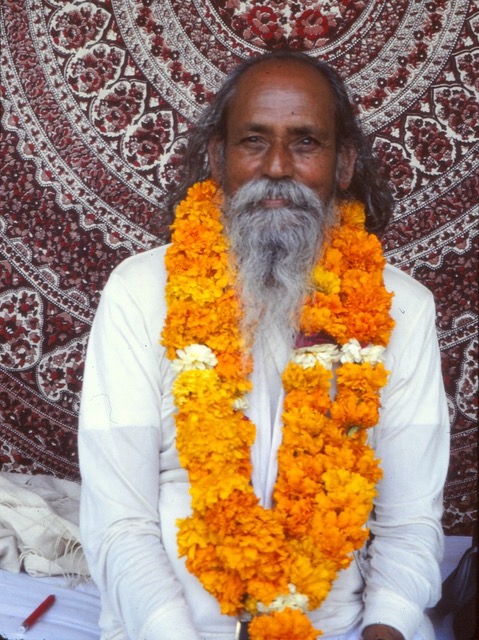Questions & Answers with Babaji

Q: Is there a way to see God in our emotions when the emotions are what is clouding our vision of God?
B: God is not seen because God is not an object; it means experience. When one is restless, one can’t experience God or Pure Consciousness, unless the emotions are caused by devotion to God.
Q: How can we deal with negative emotions, from events from the past coming into the present and pulling us?
B: The root cause is non-acceptance which is keeping anger inside. Intellectually one can say the past is past, and now I’m in the present and there’s no need to dwell on those pains. But we are not separated from the past; a bit of it is coming into the present and creating its own reality. For example, a person was beaten for shoplifting, and it is all forgotten. But once the person goes back to that place, the person will get beaten up again in his or her mind. To remove the past we can’t just forget it; we go through austerities and sadhana in life.
Q: Is that non-acceptance causing anger inside to remain?
B: Not accepting the way it was resolved at the time. We are still keeping the memory.
Q. What’s the process to thin out the impact of that memory?
B: The memory is the samskara (the conditioned print in the mind). Samskaras sprout if they are watered. If no water is given, they dry up.
Q: Should you ignore the pain, switch the mind to something else?
B: You can’t ignore it, but you can remove dwelling on it.
Q. Do those samskaras feed the ego in a way for compensating for the pain?
B: They breed by dwelling on negativities. Ego gets weaker by positivities because positivities purify the mind and are conducive to enlightenment.
Q: How do we free ourselves from egocentric desires to achieve a purified mind?
B: The first step is identify your attachment to objects. The attachment is binding you to the world. If that attachment-reality is seen as unreal, then it begins weakening.
Q: Is there any point in trying to make things better and relieve suffering?
B: There’s always a point. We want peace. We want to live in peace so we have to try to achieve peace. By our peace others around us will be affected positively.
Q: What about charity?
B: Charity starts externally, and that weakens the desire for worldly things. If you help a needy person, it is charity. It is helping you more by weakening your attachment.
Q: How do we actually offer our deeds to the Lord? What is the process?
B: By removing the ego of a performer. If we know that God is the substratum of everything, then we are separating ourselves by simply developing the ego. This ego is removed by renouncing desires, attachment and doership. The method is given in the Bhagavad Gita, chapter 9, verses 26-29. Whatever you do, do it for God.
Q: How should the mind be focused during karma yoga?
B: Mind gets restless by various desires. In karma yoga the desire is to work for the good of others. There is no self-interest. So when one understands the spirit of karma yoga, the mind starts focusing on itself.
The sun, ocean, forest, animals, humans are all serving each other, knowingly or unknowingly. When the selfish nature is removed in any action, that becomes karma yoga
